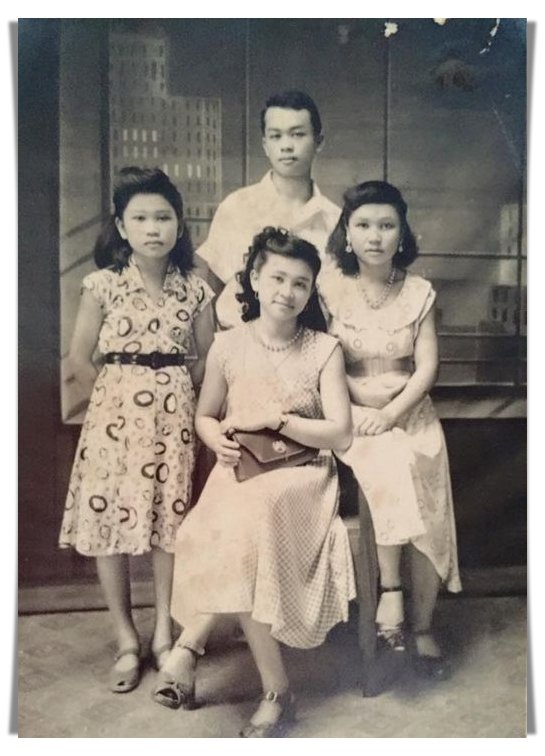
I read a Facebook post not long ago that highlighted how Malaysia's current population is now facing a decline. However, it was not that surprising to me because globally, the fertility rate has been plummeting. A local health expert, Professor Dr. Sharifa Ezat Wan Puteh, mentioned that if this trend continues, by 2030, Malaysia could have an aging population dominated by older demographics. As a woman, I see this trend as a reflection of social, economic, and cultural changes that are transforming our lives and shaping our futures. Let's explore the causes of this demographic shift and its implications for Malaysia and beyond.
Mindset Shift
In recent years, I’ve noticed that many women are choosing not to get married or have children at all. Cultural attitudes toward family life are evolving. In Malaysia and many other societies, the traditional stereotype of women as primary caregivers is being reexamined. Women are increasingly striving for equality and freedom, and this shift is particularly evident in their choices about marriage and family. The desire for personal independence, travel, and self-fulfillment has grown stronger, contributing to a decline in birth rates.
In 1970, the average fertility rate among Malaysian women aged 15 to 49 was 4.9 children per woman. By 2021, this rate had significantly decreased to just 1.7. This major drop reflects a shift in priorities, with many women now pursuing education and careers, which can be difficult to balance with the traditional nuclear family structure. Women are increasingly redefining fulfillment and success, not necessarily through childbirth and marriage.
Economic Pressures and Career Priorities
As cultural attitudes toward family life shift, women in Malaysia and around the world are prioritizing their careers and personal growth. Economic pressures play a significant role in this trend. As a mother, I am acutely aware of these challenges. The cost of living has risen sharply, making it more difficult for families to afford raising children. In Malaysia, urbanization and the rising costs of housing, education, and healthcare have put a strain on people financially, leading many to reconsider the size of their families.

Access to Family Planning and Education
Today’s women are empowered to make choices that align with their needs and lifestyles, including informed decisions about their reproductive lives. In Malaysia, efforts to improve access to family planning services and sex education have given women greater control over their reproductive choices. This empowerment allows women to plan their families in ways that align with their personal and professional goals, further contributing to the decline in birth rates.
Implications and Future Directions
This decrease in population has far-reaching implications. Economically, it could lead to labor shortages, prompting the need for foreign workers. It also increases pressure on social welfare systems, as fewer young people are available to support an aging population. Socially, this shift can alter the structure of communities and the dynamics of family life.
As women continue to shape the future, it is crucial to address the factors driving declining birth rates and to introduce policies that balance career aspirations with family life. In Malaysia, creating supportive and flexible working environments for parents, offering affordable childcare, and fostering a culture that values both professional and personal fulfillment will be essential in addressing the demographic challenges.
In conclusion, the global trend of declining populations is a complex issue driven by economic pressures, shifting mindsets about family size, and advancements in family planning. From my perspective as a woman, understanding these factors is key to handling and shaping the future. By addressing the root causes and supporting balanced policies, we can mitigate the impacts of this trend, even if it is clear that the fertility rate is unlikely to return to the levels seen in past decades.
Note on the photos used in this post:
They are photos of my mom and her siblings from 1953. My mom was 10 years old at the time, and she was one of 10 children. Back in those days, it was common for families to have large households, often with more than 10 children.
That's it for now. If you read this far, thank you. I appreciate it so much! Kindly give me a follow if you like my content. I mostly write about making art, life musing, and our mundane yet charming family life here in Klang Valley, Malaysia.
Note: All images used belong to me unless stated otherwise.

Apart from women who are running before their freedom and independence the cost to establish a family is also high. But nevertheless I consider staying unmarried or family planning can never be the solution. Even we were raised brilliantly so why not us can give our best to do the same. The situation in my country is balanced but I see the modern trends like happenings in Malaysia will soon prevail and we might face this population decline too. I am impressed with your impactful approach toward grabbing the topic these along with analysis. !LUV
I completely agree. Whether stay-at-home or working outside, mothers face a difficult dilemma. Surviving on one income is tough, but if both parents work, the cost of childcare is just as overwhelming. There’s no perfect solution. It’s easy to see why many young women today are choosing to forgo parenthood altogether. If I were from a younger generation, I might have made the same choice.
We all consider our life temporary, but you know womanhood is incomplete without having kids (please don't say Kamala Harris doesn't agree with this 😅). No matter how much we skip but if it's written I your fate you must ignore it. Glad to interact with you 💕
(1/1) sent you LUV. | tools | discord | community | HiveWiki | <>< daily@coloringiship, @ayesha-malik
This is very true.
And it's not just happening in Malaysia but other geographical locations, too. Women are refusing to be given a role. They want to enjoy every facet of life that they are able to. The resultant effect isn't very healthy for population growth but it's happening.
Yes, while we're now more enlightened and empowered to make choices that align with our values and aspirations, unfortunately, there's still a downside to consider.
View or trade
LOHtokens.@ladiesofhive, you successfully shared 0.1000 LOH with @coloringiship and you earned 0.1000 LOH as tips. (6/20 calls)
Use !LADY command to share LOH! More details available in this post.
Thank you!
Thank you!
View or trade
LOHtokens.@coloringiship, You have received 1.0000 LOH for posting in Ladies of Hive. We believe that you should be rewarded for the time and effort spent in creating articles. The goal is to encourage token holders to accumulate and hodl LOH tokens over a long period of time.